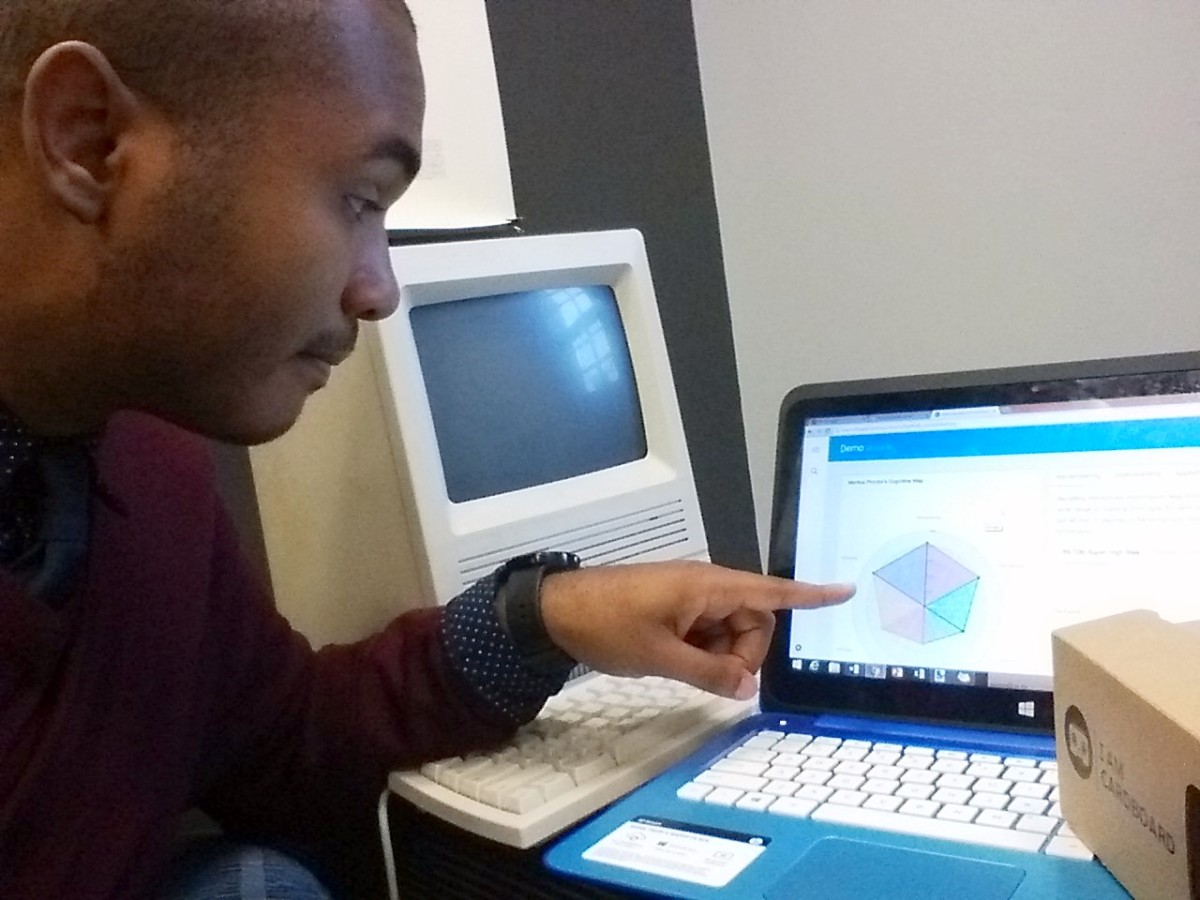Over the last year, EduPal went from a calendar tool for college students to a virtual reality platform for educators.
Huh?
With devices like the HoloLens, Google Cardboard and Oculus Rift making virtual reality increasingly cheaper to access, CEO Markus Proctor believes schools will turn to the experiences to teach.
Recently, however, he’s realized there’s also value in the data the devices can provide.
VR is a powerful tool because it allows us to give students a fun and engaging experience while we're collecting data about their learning.
Like anyone else, virtual reality touches a cord with the ’90s kid in us. So we’ve been meeting with Proctor, who is also in the midst of finishing up undergraduate studies at UMBC, a couple of times over the last six months to check in on the idea’s progress. Proctor is clearly taken with the resurgence of VR, and especially sees Google Cardboard as having the potential to change learning. Costing less than $10, he believes it can provide access to educational experiences that are otherwise missed.
In July, he showed us a quick panoramic tour of Paris in Google Cardboard, which ran from a dashboard on a smartphone. Following the tour, a quiz tested what you’ve learned to reinforce the content in the headset.
Since then, Proctor and three other EduPal team members further tested the experience with about 50 students in Prince George’s County. Through that pilot, however, Proctor came to see value not just in the students’ experience, but also in the learning data that could be gleaned after students use the VR program.
Now, Proctor sees VR as a means to evaluate students as they go, rather than on a test.
“I believe VR is a powerful tool because it allows us to give students a fun and engaging experience while we’re collecting data about their learning,” he said.
He used the example of a virtual reality tour of “A Day in the Life of a Red Blood Cell.”
“With that experience there would be activities measuring students’ ability to remember, understand, apply and evaluate,” he said.
Collecting that data and making it available for students is the next challenge.
Proctor pulled in developers from California. EduPal is working on algorithms and other machine learning tools that can present the data to teachers so they can understand students’ specific needs, Proctor said.
“It’s really designed to help the instructor’s ability to serve a classroom of diverse learners,” Proctor said.
With the technology developing rapidly and some products — like the Hololens — not even released, Proctor said he said he also wants to have a platform that can work with any headset.
The data tool is still a work in progress, but Proctor plans to present an MVP at TechBreakfast in Columbia on Dec. 9 and in Baltimore on Dec. 30.







